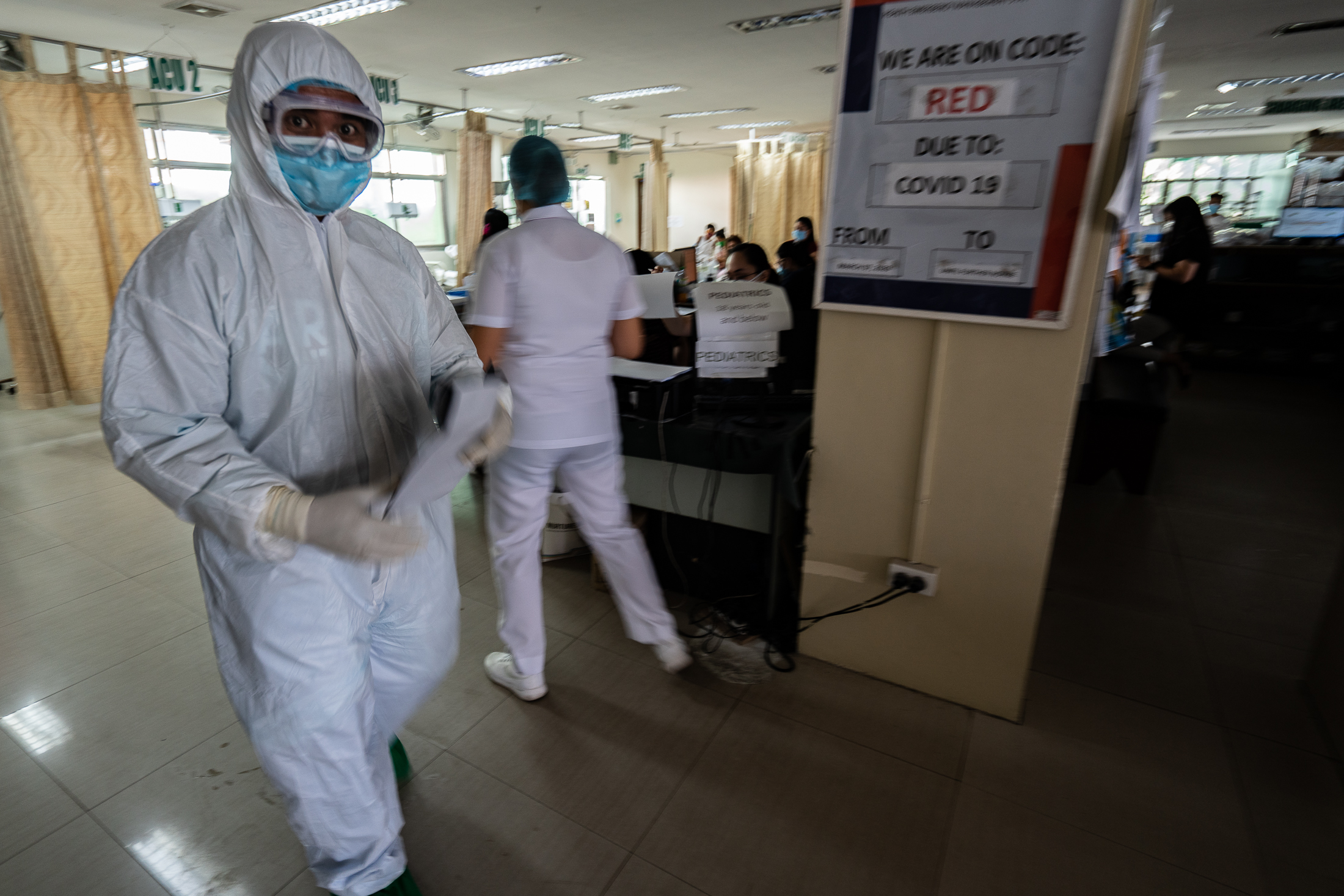After more than three years of negotiations, countries have reached consensus on a draft global agreement aimed at strengthening pandemic preparedness and response. WHO Director-General Dr Tedros Adhanom Ghebreyesus takes it as a sign that ''multilateralism is alive and well and that in our divided world – nations can still work together to find common ground and a shared response to shared threats.''
The COVID-19 pandemic sparked calls for reform in how the world prevents, prepares for and responds to pandemics. With this aim in mind, negotiations on a Pandemic Agreement began in December 2021. Striking a balance among the interests of all 193 WHO Member States proved challenging – especially with the United States’ late-stage withdrawal from both the World Health Organization and the Intergovernmental Body (INB - the body charged with negotiating the Pandemic Agreement) amid a backdrop of rising geopolitical tensions. Over the course of 13 formal negotiation rounds in Geneva and numerous intersessional talks, countries and the INB Bureau – most recently chaired by Precious Matsoso (South Africa) and Anne-Claire Amprou (France) – worked to craft a comprehensive and balanced agreement. The finalised draft is now set to be considered at the World Health Assembly in May. While the United States is not expected to ratify the Agreement, the final unified draft demonstrates that multilateral cooperation on global health remains possible—even without the involvement of some major players.
NCDs in Pandemic Prevention, Preparedness, and Response (PPPR)
The COVID-19 pandemic severely disrupted the global response to noncommunicable diseases (NCDs), as already strained health systems struggled to provide and sustain access to essential care and treatment. People living with NCDs were also at significantly higher risk of severe illness and complications from COVID-19. As the leading global cause of death, NCDs cannot be treated as a separate silo from pandemic preparedness - for resilient and equitable health systems, NCD prevention and care must be integrated into broader PPPR strategies. While the draft Pandemic Agreement does not explicitly reference people living with NCDs, it lays foundations for more inclusive and integrated health systems that can withstand crises and deliver care to all—especially those most at risk.
The NCD Alliance has actively engaged in the negotiations since the early stages of the negotiations, advocating for the integration of NCD priorities into the Agreement. Key efforts included advocating for the inclusion of people living with NCDs in the definition of vulnerable populations, protecting continuity of essential health services, retaining language on strengthening and protecting the health and care workforce, and aligning the Agreement’s Universal Health Coverage provisions with the 2023 UHC Political Declaration.
Consensus achieved – but not without challenges
The draft Pandemic Agreement addresses a wide range of PPPR issues across 37 articles, which aim to strengthen global collaboration and equity in future health emergencies.
At its core is the adoption of a One Health approach, which recognises the interconnection between human, animal, and environmental health. Through Article 5, Member States have committed to identifying and addressing the drivers of emerging diseases at the human-animal-environment interface, to help prevent zoonotic outbreaks before they escalate into pandemics.
Another major highlight is the groundwork laid for the creation of a Pathogen Access and Benefit Sharing (PABS) system, coordinated by the World Health Organization. Article 12, widely seen as the heart of the agreement, aims to facilitate rapid, systematic and timely sharing of biological materials with epidemic and pandemic potential. This system would be essential for ensuring timely development of diagnostics, vaccines, and therapeutics during an outbreak. Currently, pathogen-sharing largely occurs through informal and ad hoc channels, creating delays and inequities in access to tools and information. By committing to the creation of a formalised, WHO-led mechanism, the agreement takes a major step toward more equitable, transparent, and reliable access to the materials needed for an effective outbreak response. Details of the PABS instrument are to be defined later, but currently Article 12 proposes that manufacturers participating in the system provide 20% of pandemic-related vaccines, diagnostics, and therapeutics to WHO, with 10% donated and 10% at ‘affordable’ prices.
The most contentious and politically charged development occurred hours before the end of negotiations over Article 11, which addresses the ‘transfer of technology and cooperation on related know-how for the production of pandemic‑related health products’. Initially, negotiators believed they had broken the impasse on Article 11 by agreeing to a footnote that clarified the meaning of “as mutually agreed,” seen as a workable compromise that avoided using the word “voluntary.” But a new mandate driven by the G7 nations sought to insert the footnote into every reference to technology transfer throughout the Agreement. This last-minute change introduced significant legal and operational complications, affecting the interpretation of other articles that had already been agreed-upon, and risks codifying a ‘voluntary-only’ approach to technology transfer – one of the failures of the COVID-19 response. In a joint letter, 30 legal experts warned that officially defining technology transfer in this way would undermine States’ sovereign rights to use domestic laws to mandate access during emergencies. Germany, for instance, which took a hard line on this provision, already has legislation that allows non-voluntary measures under exceptional circumstances.
NCDA priorities reflected in the Pandemic Agreement
The agreement places a welcome emphasis on the healthcare workforce—an area of longstanding advocacy for the NCD Alliance. It commits Member States to develop, protect, and invest in a skilled, multidisciplinary health workforce and ensure decent working conditions. It also includes clear references to mental health and wellbeing, gender equality, and the elimination of discrimination—issues that were priority advocacy areas for NCDA and other civil society stakeholders. A skilled, supported and resilient workforce is essential for ensuring uninterrupted care during crises, especially for people living with chronic conditions.
The agreement also affirms commitments to Universal Health Coverage (UHC) and adopting whole-of-government and whole-of-society approaches. Importantly, it defines "persons in vulnerable situations" in a broad and inclusive manner, including “those with a disproportionate increased risk of infection, morbidity, or mortality, as well as those likely to bear a disproportionate burden owing to social determinants of health in the context of a public health emergency of international concern”. While no specific reference to people living with NCDs was included, this framing is sufficiently expansive to be interpreted as inclusive of this population.
The need for health system strengthening: lessons from the COVID-19 pandemic
The COVID-19 pandemic demonstrated how easily the continuum of care can be disrupted during global health emergencies. People living with NCDs, who rely on consistent, long-term care, were sidelined when routine services were disrupted in health systems that prioritised the acute pandemic response. This led to worsened health outcomes for people living with NCDs and highlighted the systemic vulnerabilities that leave individuals with chronic conditions at risk.
Building resilient systems means ensuring that the emergency response does not come at the cost of essential services. It means designing health systems that can withstand emergencies while continuing to deliver person-centred care for all, especially those most vulnerable. Given the current global political and economic constraints and difficulties in achieving consensus on the text, the draft Pandemic Agreement is a testament to the commitment of negotiators, advocates and WHO staff. As we look ahead to the World Health Assembly in May, we strongly urge Member States to formally adopt the agreement. Doing so is a critical step toward health systems that are better prepared, more equitable, and truly leave no one behind.





